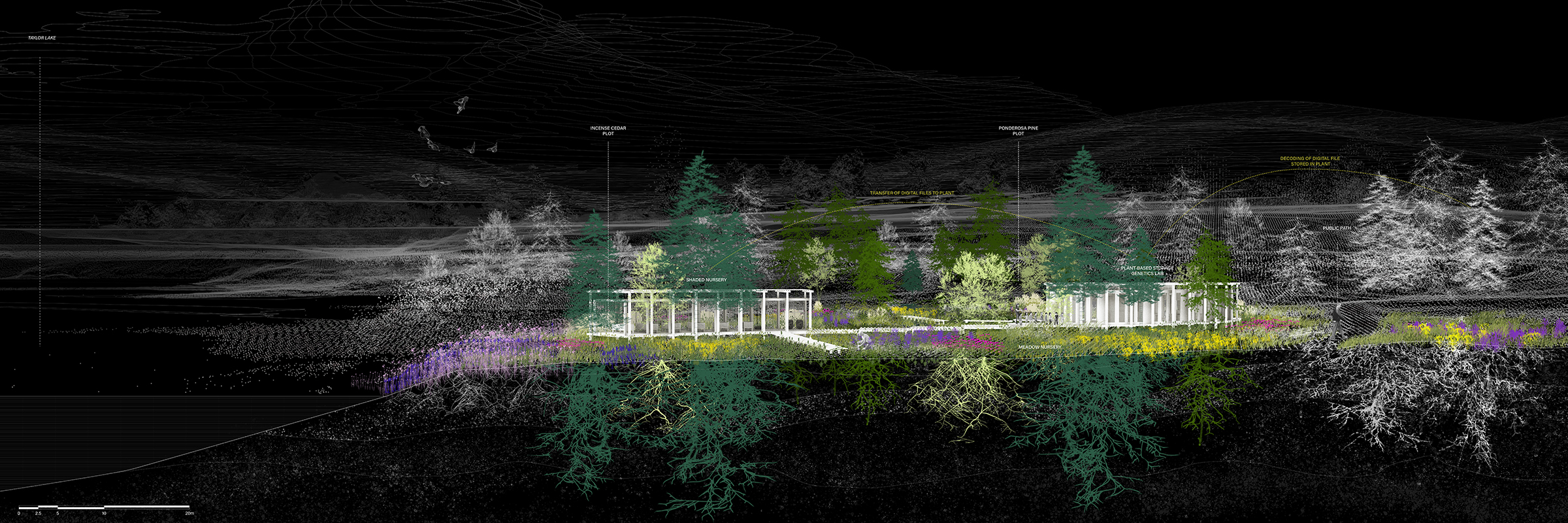Uncommon Knowledge: Practices and Protocols for Environmental Information
Harvard Graduate School of Design (2023)
Landscape Architecture Thesis Prize and Digital Design Prize
Advised by Rosalea Monacella
The databases that landscape architects rely on to design future-oriented infrastructure—the SHP files and CSVs that describe a site’s climate, plants, and soils—often inadvertently appeal to extractive forms of knowledge production and storage. What if we were to design information infrastructures, both physical and digital, that are premised on collective ownership as opposed to existing systems that privatize, accumulate, and collect? This thesis responds to the contemporary environmental information economy at the site of Google’s first hyperscale data center in water stressed The Dalles, Oregon. On the banks of the polluted Columbia River straddling Washington and Oregon, data is expanded into the development of a physical landscape: hardware to hold information is paired with plant wetware to engage the designed landscape as a form of sensor and data repository. Plants, as opposed to backdrops in the landscape, are a central component of a collectively-managed informational system. In a multimedia installation involving video collapsing territorial LIDAR datasets and the stamen and stems of flowers, real plants and Arduino sensors, the clash of resolution between plants and GIS aimed to reveal the distance between material and immaterial in our understanding of environmental data. By deepening the connection between people, their environments, and information, the landscape stokes political agency and action in at-risk watersheds through uncommon models of knowledge production.
The work has been featured in courses and lectures at the University of Connecticut, Harvard, Princeton, Syracuse, and the Cooper Union, among others. Parts of the work were also featured in the Confluence Lab’s online exhibition, Stories of Fire: Sightlines, jointly hosted by the University of Idaho’s Pritchard Gallery.
Harvard Graduate School of Design (2023)
Landscape Architecture Thesis Prize and Digital Design Prize
Advised by Rosalea Monacella
The databases that landscape architects rely on to design future-oriented infrastructure—the SHP files and CSVs that describe a site’s climate, plants, and soils—often inadvertently appeal to extractive forms of knowledge production and storage. What if we were to design information infrastructures, both physical and digital, that are premised on collective ownership as opposed to existing systems that privatize, accumulate, and collect? This thesis responds to the contemporary environmental information economy at the site of Google’s first hyperscale data center in water stressed The Dalles, Oregon. On the banks of the polluted Columbia River straddling Washington and Oregon, data is expanded into the development of a physical landscape: hardware to hold information is paired with plant wetware to engage the designed landscape as a form of sensor and data repository. Plants, as opposed to backdrops in the landscape, are a central component of a collectively-managed informational system. In a multimedia installation involving video collapsing territorial LIDAR datasets and the stamen and stems of flowers, real plants and Arduino sensors, the clash of resolution between plants and GIS aimed to reveal the distance between material and immaterial in our understanding of environmental data. By deepening the connection between people, their environments, and information, the landscape stokes political agency and action in at-risk watersheds through uncommon models of knowledge production.
The work has been featured in courses and lectures at the University of Connecticut, Harvard, Princeton, Syracuse, and the Cooper Union, among others. Parts of the work were also featured in the Confluence Lab’s online exhibition, Stories of Fire: Sightlines, jointly hosted by the University of Idaho’s Pritchard Gallery.
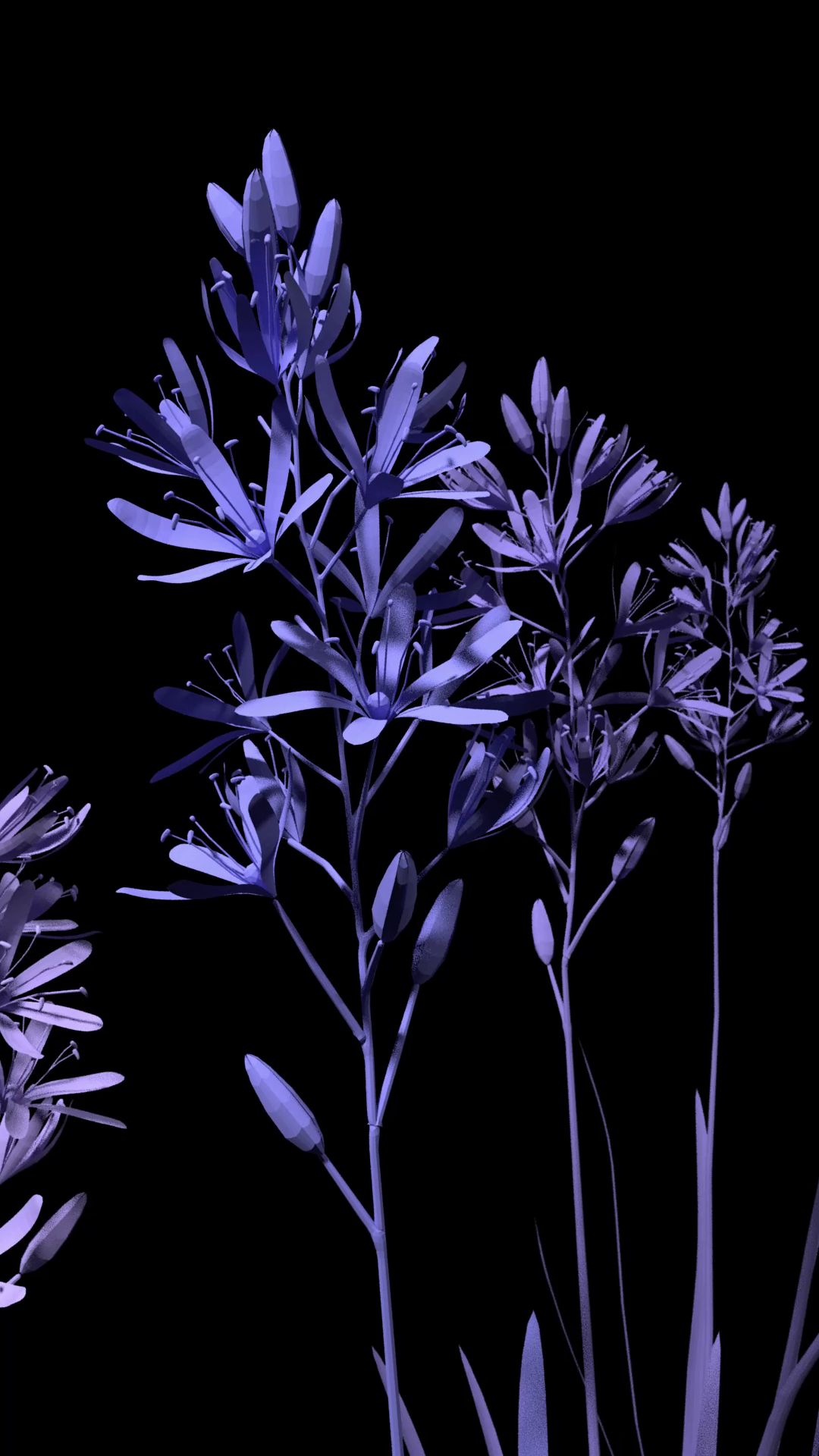


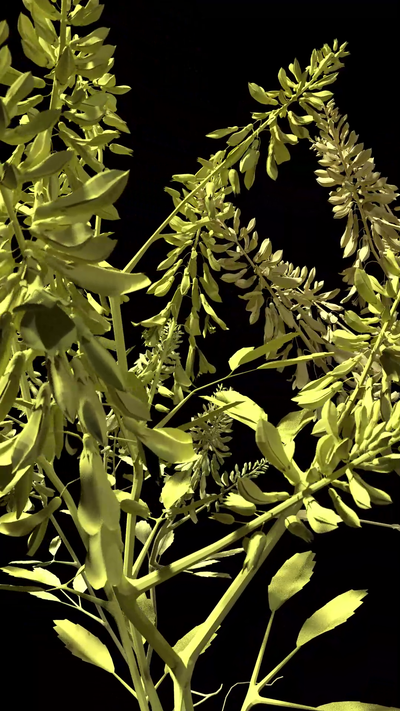
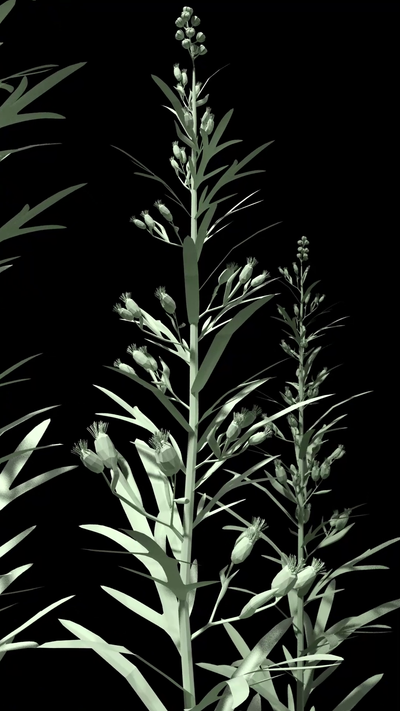
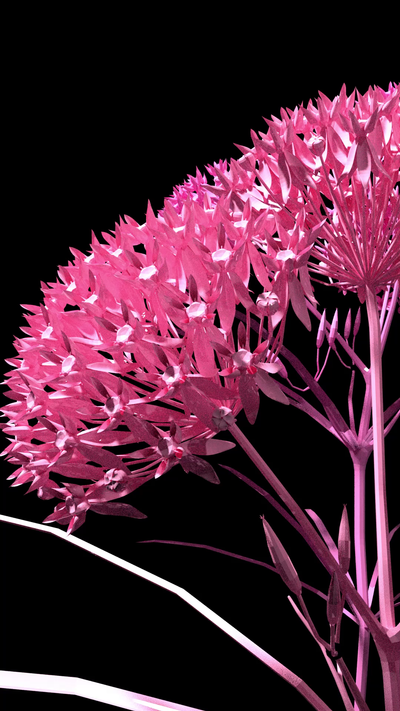
Exhibition
Introduction
![]()
![]()
![]()
![]()

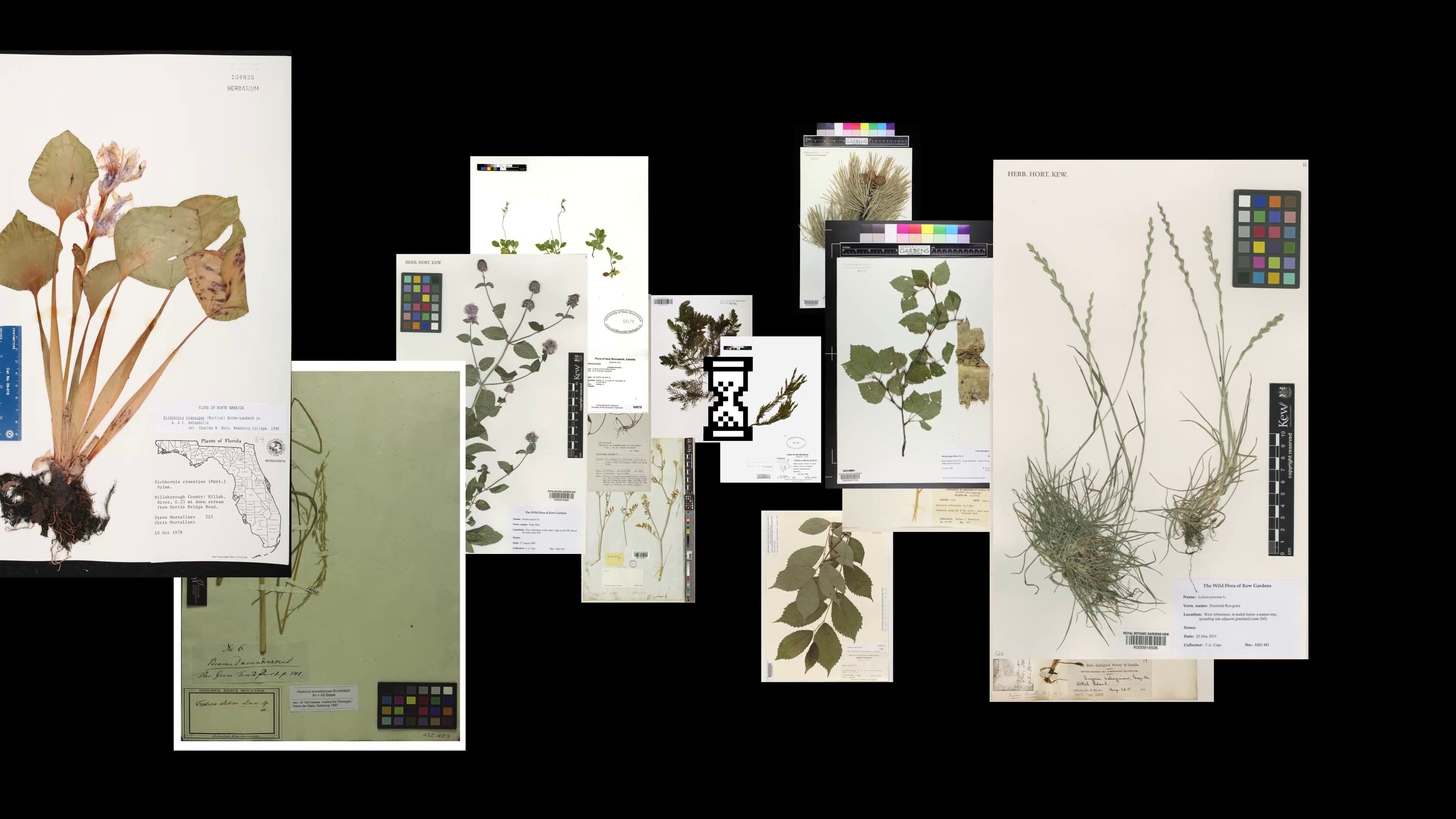


Site 1: Toxicity
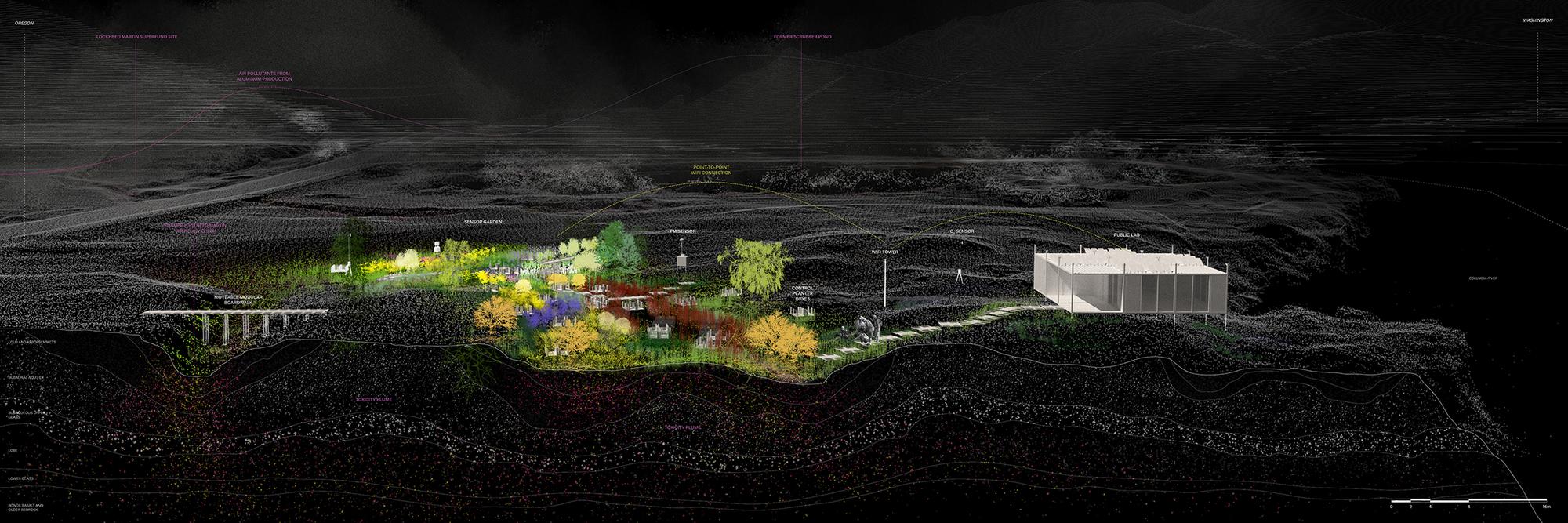

Site 2: Energy
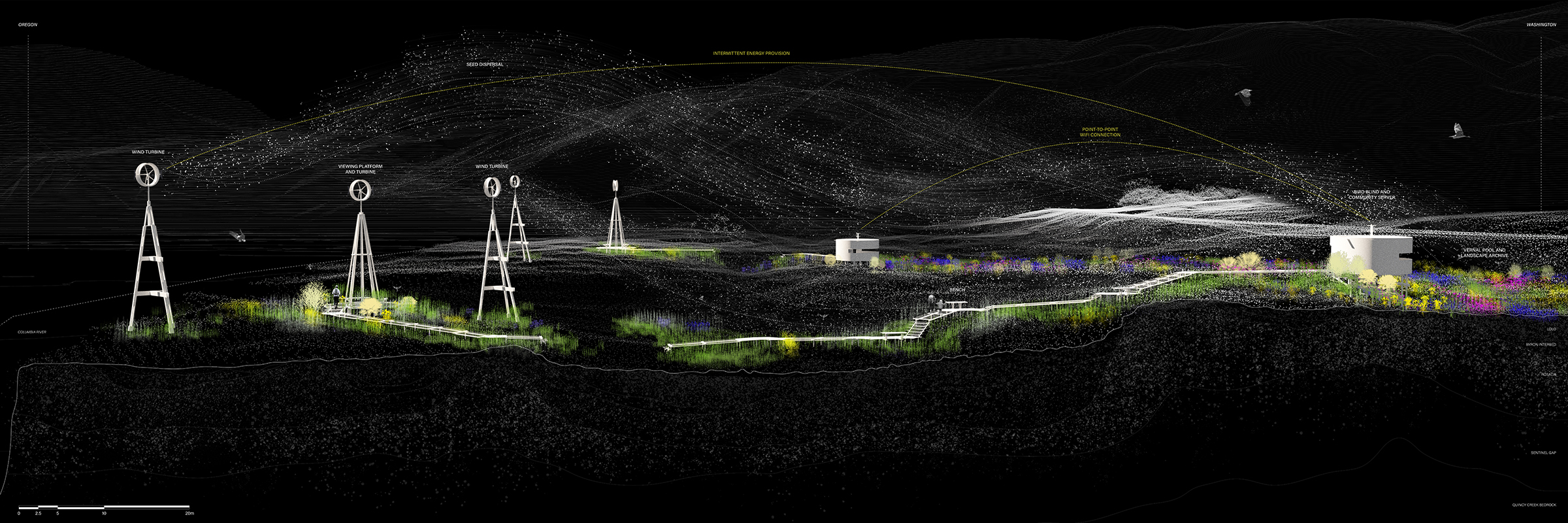

Site 3: Groundwater
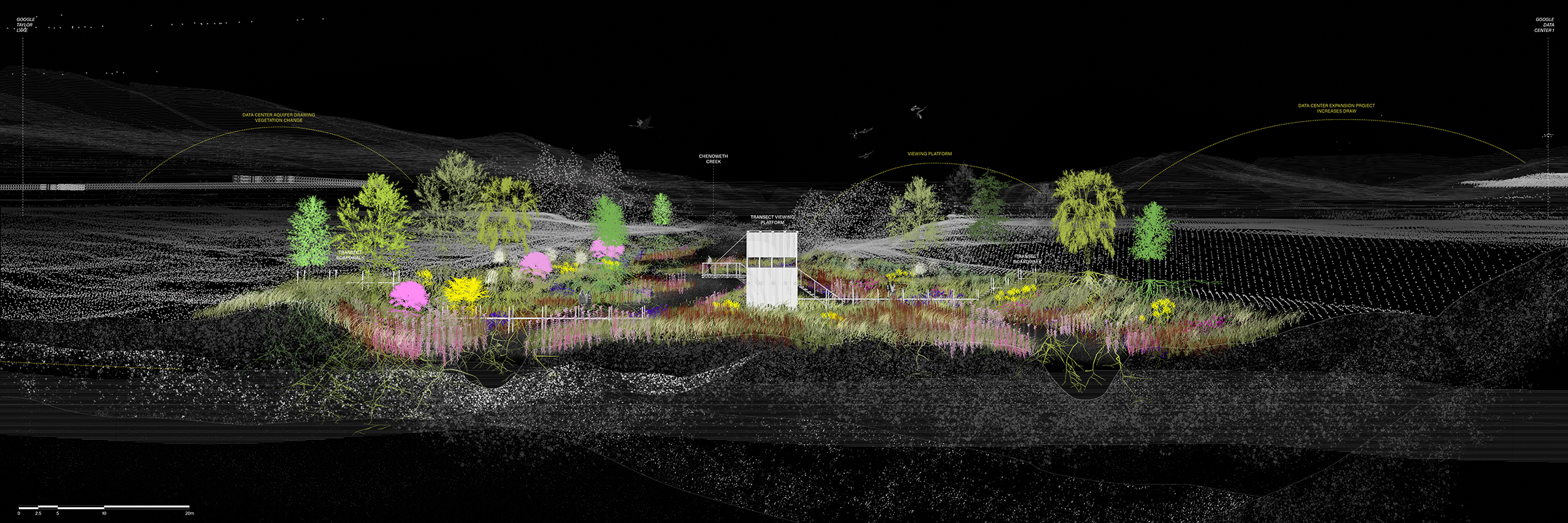

Site 4: Governance
